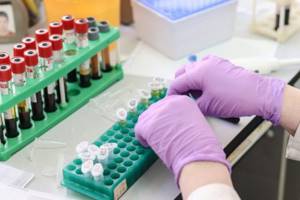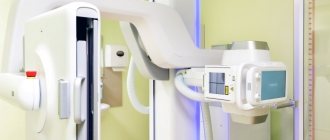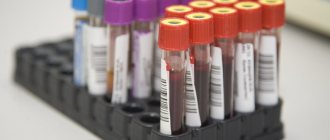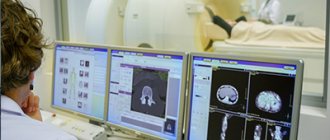CA-19-9 is a protein produced by pancreatic tumor cells. Normally, it is present in the tissues of various organs, primarily related to the gastrointestinal tract. The glycoprotein is also found in seminal fluid. Deciphering the result for the cancer antigen CA-19-9 must be approached very carefully, since an increase in its level cannot be interpreted unambiguously.
For example, in women after 50 years of age, the protein level may be higher than normal, and in some representatives of the Caucasian peoples, due to a genetic feature, the tumor marker in the blood serum is completely absent, since it is not produced by the body. The analysis is not suitable for accurate differentiation of the disease and early diagnosis of tumors, so it is carried out in combination with the study of other antigens - CA-125, HE4, AFP, CEA.
Detailed description of the study
Tumor markers, or tumor markers, are specific substances that contain proteins combined with a carbohydrate or lipid component. They are produced by malignant or normal cells associated with tumor growth.
The following are tumor markers: enzymes, glycoproteins, antigens, hormones and lipids. As a rule, their content increases as the tumor grows.
Monitoring the concentration of tumor markers is mainly used in cancer therapy. By measuring this indicator over time, one can judge the effectiveness of treatment or, conversely, its ineffectiveness. This is important if the therapy uses a drug or method to which malignant cells may develop resistance. By identifying resistance in time, you can replace the drug or treatment method with another, thereby improving the results of therapy.
Carbohydrate antigen CA 19-9 is one of the markers of pancreatic malignancies: high concentrations are detected in 65-70% of patients. It is a special complex of protein and carbohydrate that is normally formed by epithelial cells of the gastrointestinal tract. In the blood of healthy people, the CA 19-9 antigen is detected in very small quantities. CA 19-9 does not have sufficient sensitivity and specificity, so it is not used for screening for pancreatic malignancies.
An elevated CA 19-9 level does not always indicate the presence of a malignant pancreatic tumor. Sometimes test results may be higher due to other medical conditions. Thus, the CA 19-9 antigen is found in concentrations exceeding the norm in the following pathologies: tumor formations of the gallbladder and bile ducts, colon cancer (colorectal cancer), stomach cancer, liver cancer. The CA 19-9 antigen is excreted only in bile, so it can be increased in some benign neoplasms of the bile ducts, as well as in cases of impaired bile outflow due to blockage of the bile ducts.
By determining the level of the tumor marker CA 19-9 in the blood, the likelihood of cancer recurrence or metastasis is monitored. The level of CA 19-9 antigen increases in accordance with the stages of the tumor process. An increase of more than 10,000 indicates the appearance of distant tumor metastases. In colorectal cancer, an increase in CA 19-9 is a poor prognostic sign.
Indications for the purpose of analysis
- Monitoring the course of the disease, preclinical diagnosis of metastasis and assessment of the effectiveness of therapy for pancreatic carcinoma.
- Monitoring of patients with possible recurrence of stomach cancer - in combination with CEA (carcinoembryonic antigen).
- CEA-negative colon carcinomas.
Preparation for the study: not required. Material for research: blood serum. Determination method: immunoassay. Units of measurement in the laboratory: U/ml. Reference values:
References
- Pancreas cancer. Clinical guidelines, 2021. - 36 p.
- Grigorieva, I.N., Romanova, T.I., Suvorova, T.S. and others. Features of clinical symptoms in patients with pancreatic cancer. Experimental and clinical gastroenterology, 2015. - No. 5 (117). — P.84.
- Chesnokov, M.S., Shavochkina, D.A., Gorev, A.D. et al. Molecular biomarkers of pancreatic ductal adenocarcinoma and the possibilities of their use in clinical practice. Molecular medicine, 2013. - No. 6. — P. 21-26.
- Gundin-Menendez, S., Santos, V., Parra-Robert, M. et al. Serum CA 19.9 levels in patients with benign and malignant disease: correlation with the serum protein electrophoretic pattern. Anticancer research, 2021. - Vol. 39(2). — P. 1079-1083.
What tumor markers show and how to get tested correctly
Analysis for tumor markers allows you to:
• find out whether the patient is at risk; • roughly identify the affected organ; • suspect a relapse of oncology;
When receiving test results for tumor markers, special attention should be paid to:
• for increased performance; • appears to have elevated tumor markers.
Changes in indicators indicate that there are deviations from the norm in the human body, including progressive cancer cells. The main advantage of the analysis is that tumor markers show the presence of cancer in the early stages, which is very important for the effectiveness of treatment.
How and where is the analysis performed?
When the patient has received a referral to determine the level of the indicator, it should be written on it where to go. Determination of the cancer antigen CA 19-9 is one of the indicators that must be tested in the blood free of charge under the compulsory health insurance policy.
Blood to determine the tumor marker should be donated from a vein. Typically, such indicators do not require special training. Some laboratories do not even indicate the need to donate blood on an empty stomach. Therefore, it is worth checking this issue with the laboratory where the patient is thinking of going.
If you do not have the opportunity to clarify whether the patient can have breakfast in the morning or not, then it is better to donate blood on an empty stomach. This way you can be absolutely sure that you will not have to donate blood.
There are also generally accepted rules for preparing for analysis:
- do not smoke for several hours before the test;
- refrain from intense physical activity;
- eliminate emotional stress.
It is unlikely that physical activity and stress would have a significant impact on the study results. However, for peace of mind and no doubt about the accuracy of the results, you should adhere to these rules.

Photo: https://pixabay.com/ru/photos/laboratory-medical-medicine-hand-3827743/
Also, any blood test can be performed at a paid clinic. On average, the cost of determining carbohydrate antigen 19-9 will cost the patient from 500 to 1000 rubles. Price may vary depending on organization and region.
How are the results deciphered?
It is up to the specialist to determine what the tumor marker Ca 19-9 shows. On medical forums you can find a large amount of information about what diseases provoke deviations from the norm, but without the help of a specialist it will not be possible to decipher them, as well as to select effective treatment tactics. Therefore, even knowing what an increase in indicators means, the patient should trust the doctor, who will carefully study the laboratory results and give an expert opinion taking into account a number of factors:
- age and gender of the patient;
- state of the body at the time of examination;
- presence of other diseases;
- data from other instrumental and biochemical studies;
- characteristics of the equipment and reagents used;
- previously detected cancer;
- family history;
- changes in normal values due to the need for the patient to take any medications.
No doctor will simply prescribe such a test, so if you receive a referral, you must immediately contact the laboratory. Israeli clinics are considered the best in early diagnosis of oncology and delight clients with reasonable prices. By contacting a reliable medical center like Assuta, you can count on prompt and highly accurate diagnostics, as well as attractive conditions for further treatment.
How to interpret a PSA test
If a patient has prostate cancer, the level of the PSA tumor marker in his body increases significantly. Antigen normal levels directly depend on the patient’s age.
- The norm for men who are in the age group of 17-40 years is a PSA value below 0.33 ng/ml.
- Normal values for men 41-50 years of age are below the maximum permissible limit of 0.42 ng/ml.
- Normal results for men 51-60 years old should not exceed 0.49 ng/ml.
- The norm for elderly men aged 61-90 years is no higher than 0.87 ng/ml.
Reliability of PSA test results
Not in all cases, an increase in the concentration of the PSA tumor marker serves as an indicator of prostate cancer. It has been proven that a certain increase in prostate specific antigen levels can be observed in diseases such as prostate adenoma and prostatitis. In this case, doctors must not only diagnose total PSA; they also check the concentration of its free fraction, as well as the ratio of free antigen to total PSA. The norm for free PSA in the male body is within 0.4-0.5 ng/ml. If a patient has a benign disease, the ratio of total and free PSA is more than 15%. If the patient has an oncological process, this figure will be less than 15%.
Why else can PSA results be distorted?
There may be some deviations in test results for the level of prostate specific antigen from the norm if a man has recently undergone medical manipulation associated with an effect on the prostate. This may be bladder catheterization, prostate massage, cystoscopy, biopsy, rectal digital examination, transrectal ultrasound examination, and so on.
All these factors can lead to a temporary increase in PSA levels in the test results. Nevertheless, a stable and pronounced increase in the concentration of the specific tumor marker PSA in a man’s body in most cases indicates prostate cancer.
What do high PSA values mean?
It is necessary to decipher tests for PSA tumor markers based on how far the indicators go beyond the normal range. If the test results for a prostate-specific tumor marker are significantly increased, this may indicate a suspicion of prostate cancer, an increased risk of developing this disease in the patient, and also that there are cancer metastases in the body.
High values may indicate the following:
- If, as a result of PSA tests, the tumor marker in the male body is 4-10 ng/ml, doctors say that the patient is suspected of prostate cancer.
- If the substance level is in the range of 10-20 ng/ml, an increased risk of developing prostate cancer can be assumed.
- If the value of prostate specific antigen exceeds 40 ng/ml, metastases may be present in the patient's body.
A blood test for the PSA tumor marker is inexpensive, but regular testing will help prevent the development of a dangerous disease.
Normal CA level is 19-9
Since this compound is a tumor marker, its content should normally not be high. No more than 37 units per milliliter of carbohydrate antigen 19-9 content is allowed.

Photo: https://pixabay.com/photos/application-daily-report-care-3978657/
The indicator must be deciphered by a doctor, taking into account other tests, the clinical picture, and so on.
Tumor marker specificity
An ideal tumor marker should have 100% specificity. This means that in 100 cases out of 100 for a particular type of pathology, this tumor marker will always be elevated. The specificity of this indicator is far from ideal.
Only in 75–82% of cases of malignant neoplasms of the pancreas will the content of this glycoprotein be increased. It is a choice marker. That is, if a doctor suspects organ cancer, he may choose another indicator, not necessarily this one.
Also, in approximately 50 - 60% of cases, CA 19-9 can increase in liver and intestinal cancer.
Where can you find this carbohydrate antigen?
This protein can be found in the following organs of the human body:
- Bile ducts;
- Salivary glands;
- Prostate gland;
- Gastrointestinal tract;
- Uterus cells.
Based on this, it can be concluded that obtaining this antigen is permissible from pancreatic secretions, saliva, sperm, and bile. This rather specific protein can be produced even by an unborn baby - its digestive system.
When is CA 19-9 level analyzed?
The patient will receive a referral to study the level of this glycoprotein in the following cases:
- when the doctor suspected a malignant tumor of the pancreas, liver, gallbladder, as well as stomach, esophagus, and even ovarian cancer;
- in order to identify the relapse of malignant pathology of the pancreas, liver, gallbladder, stomach, esophagus, ovaries;
- determining the presence of tumor metastases in the above organs;
- to distinguish inflammation of the pancreas from a malignant process in it.
This indicator is not the main one in the diagnosis of malignant processes. For a more accurate diagnosis, a number of additional studies are carried out.










